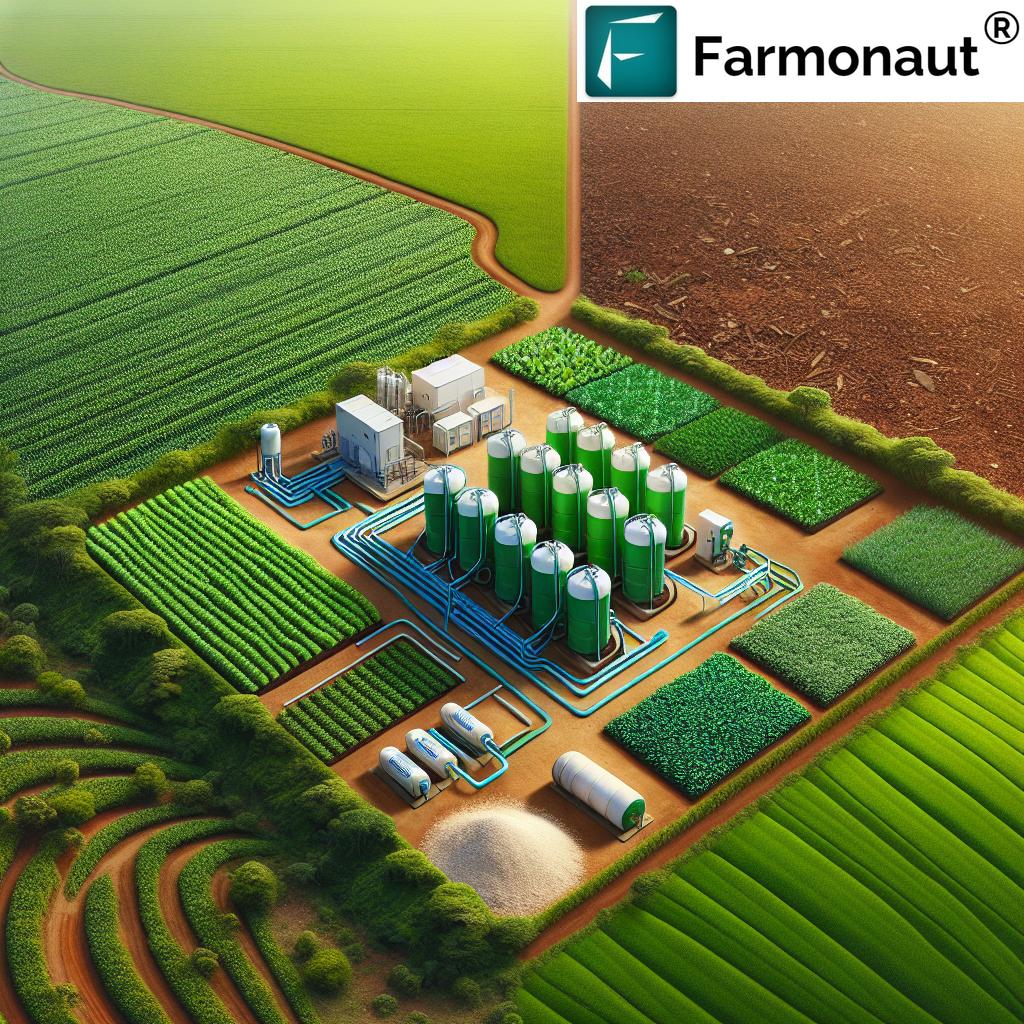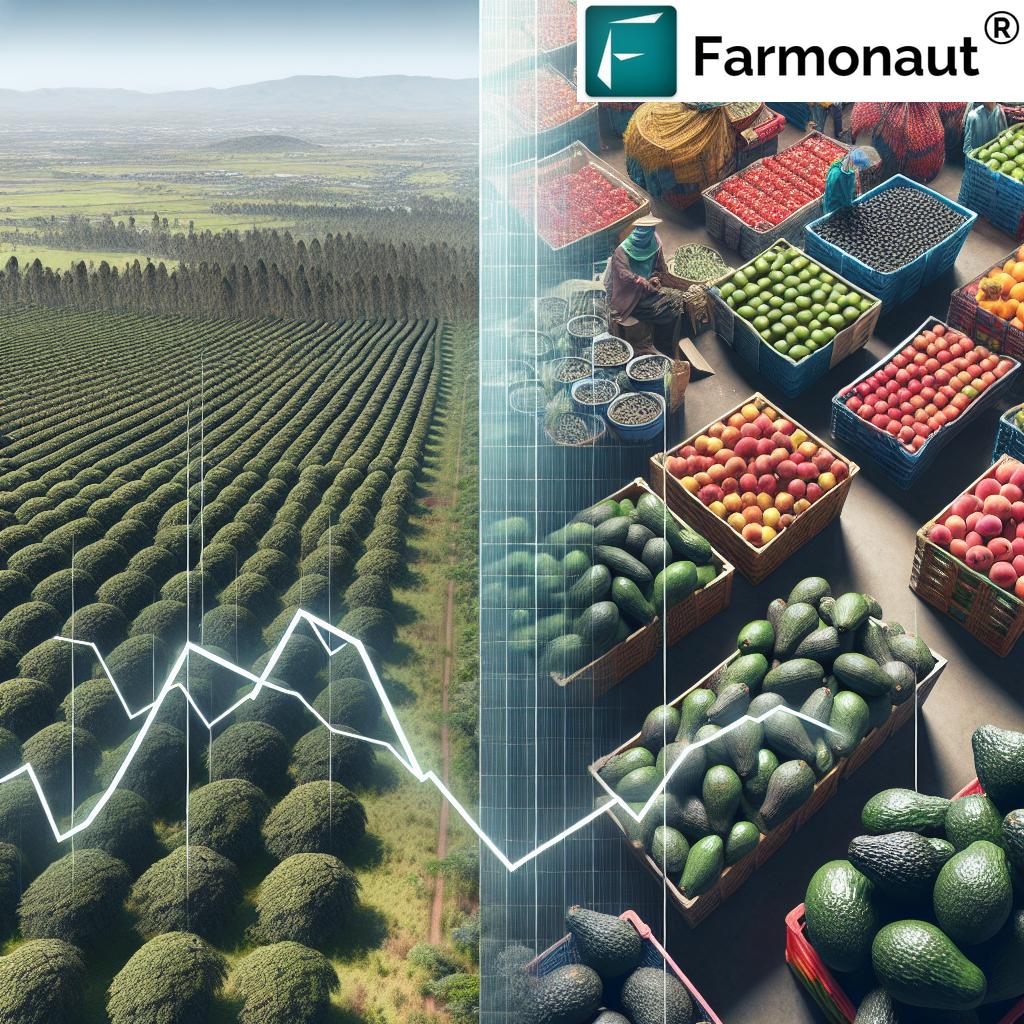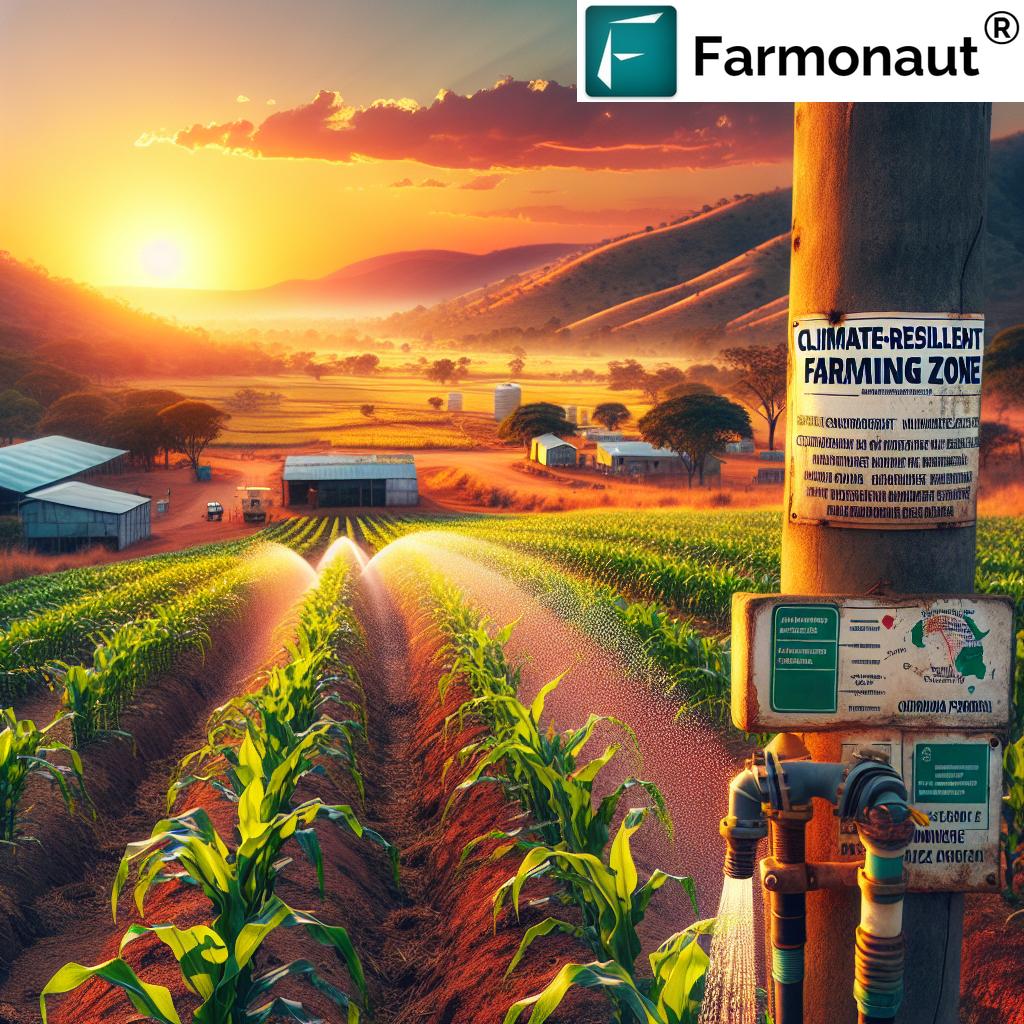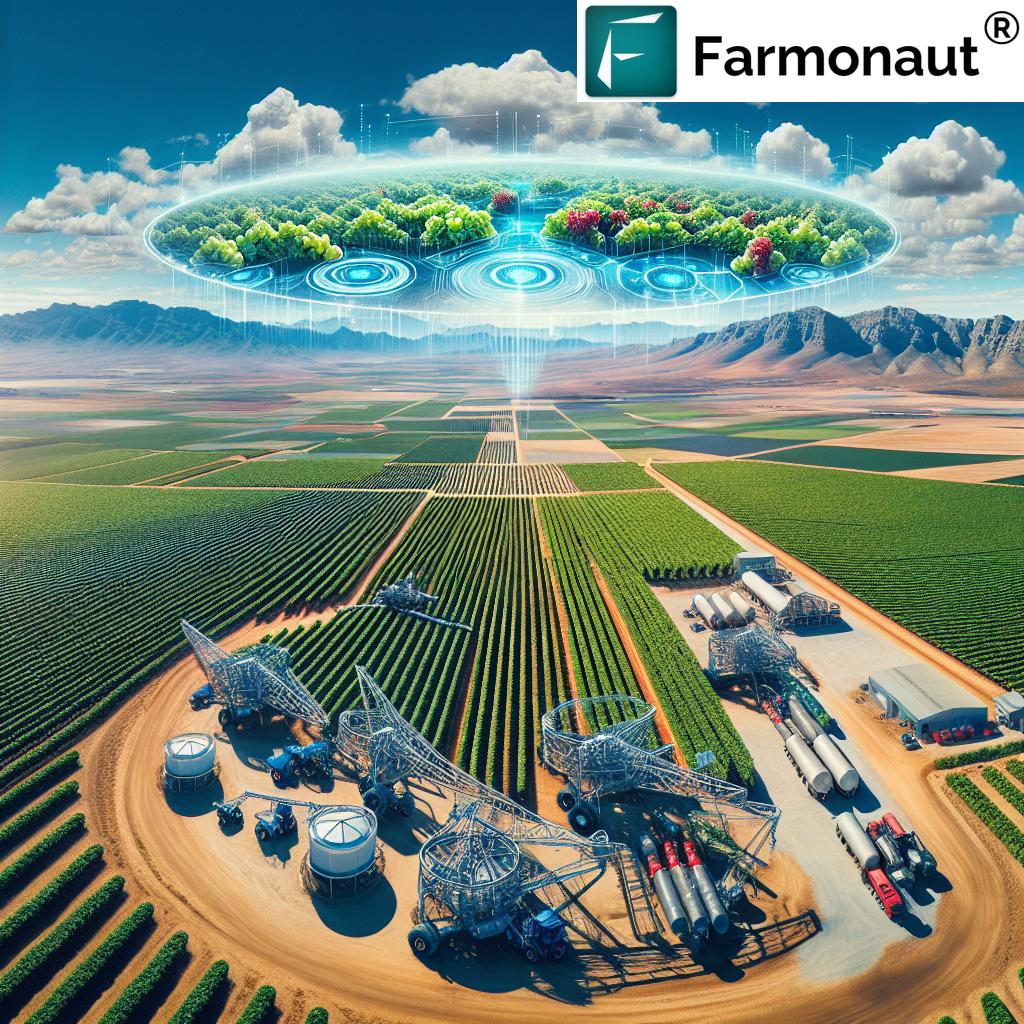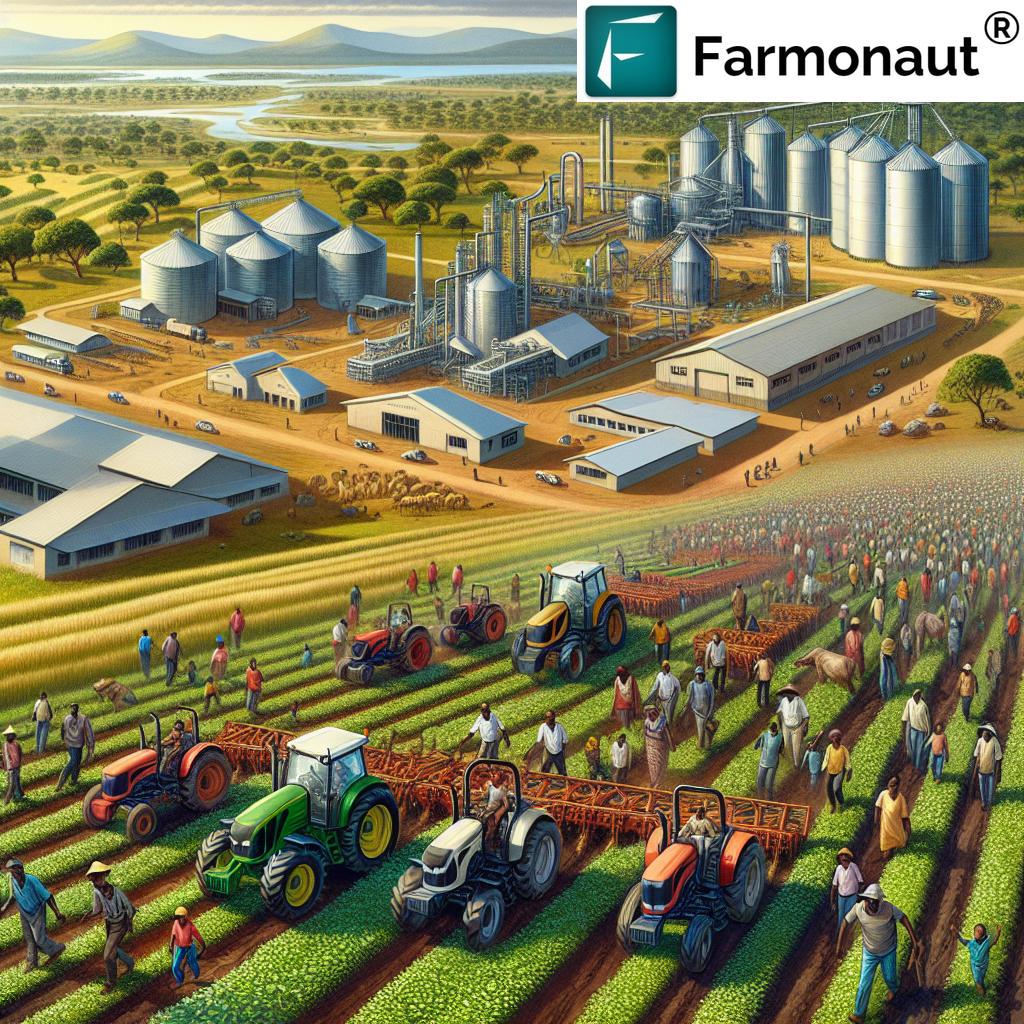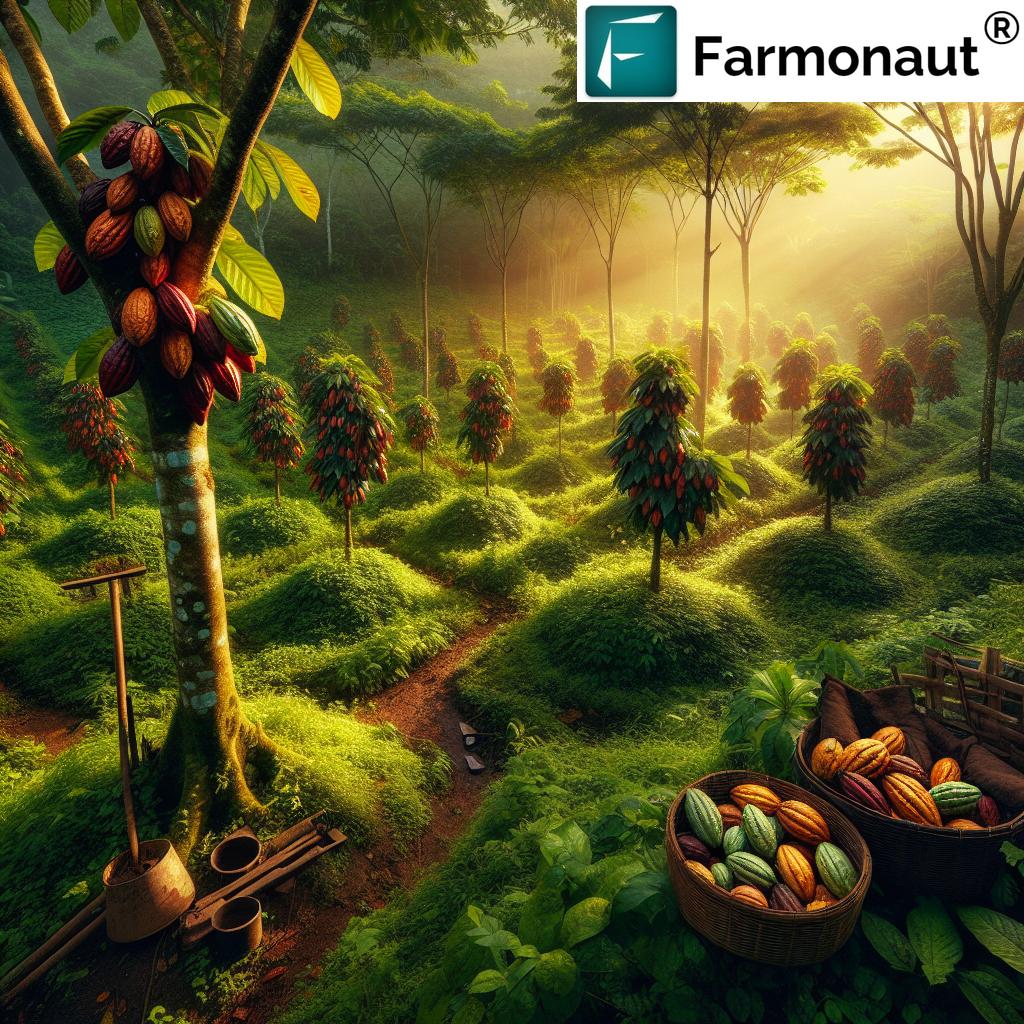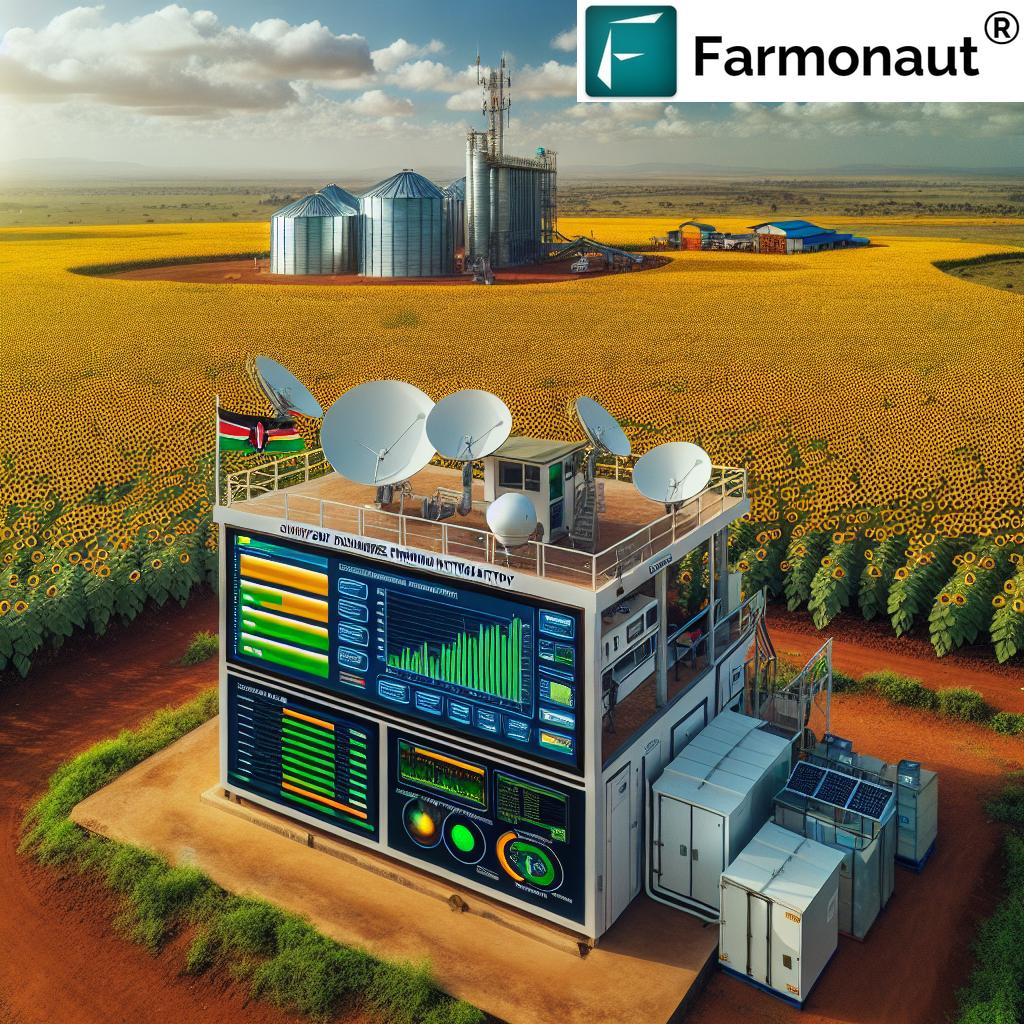Agriculture South Africa 2025: Farming Innovations Driving Sustainable Growth
“By 2025, over 60% of South African farms are expected to adopt smart irrigation technologies for water efficiency.”
“South Africa cultivates more than 30 diverse crop types, driving innovation in sustainable agriculture by 2025.”
- Agriculture South Africa: 2025 Overview
- Diversity of Crops & Regional Specializations in Agriculture Farming South Africa
- Livestock: A Cornerstone of South Africa Agriculture
- Forestry Sector and Sustainable Resource Management
- Climate Challenges and Resilient Agriculture Practices
- Smart Farming Innovations in South Africa Agriculture 2025
- Comparative Technology Adoption Table: South Africa Agricultural Innovation
- How Farmonaut Empowers South Africa’s Agricultural Sector
- Land Reform, Access, and Market Integration
- Regional Trade, SADC, and South Africa’s Global Agricultural Impact
- Future Prospects: Agriculture South Africa in 2025 and Beyond
- FAQ: Agriculture South Africa 2025 & Farming Innovations
- Farmonaut Subscription
Agriculture South Africa: 2025 Overview
Agriculture South Africa remains a vital pillar of the african country’s economy, culture, and rural livelihoods as it moves through 2025. The agriculture of South Africa, shaped by its diverse climate zones and rich natural resources, encompasses a wide range of agricultural activities and operations. This includes the cultivation of crops and fruits, livestock development, and forestry initiatives that together constitute the agricultural landscape.
Understanding the current state and future prospects of agriculture in South Africa requires a holistic exploration of its farming practices, prevailing challenges, innovations, and critical contributions to the national and global food system.
Agriculture farming in South Africa is characterized by remarkable diversity. The nation’s farms range from highly mechanized, commercial operations focused on exports, to smallholder and subsistence farmers supporting rural communities. The sector includes staple crops like maize and wheat, export products such as wine and citrus, and substantial livestock and forestry production.
Diversity of Crops & Regional Specializations in Agriculture Farming South Africa
Agriculture South Africa is defined by its extensive crop diversity and regional specializations. South Africa grows more than 30 crop types, from maize and wheat to citrus fruits, grapes, wine, sugarcane, and various vegetables and nuts. This wide range is possible due to the varied climatic zones and abundant natural resources across provinces.
- Maize: The country’s most significant staple crop, vital for household food security and animal feed. Grown in the Free State, Mpumalanga, and North West regions.
- Wheat: A key winter crop, primarily produced in the Western Cape and Free State.
- Sugarcane: Dominant in KwaZulu-Natal and Mpumalanga, the sector supports both domestic needs and export markets.
- Citrus Fruits: South Africa is a world leader in citrus exports, with the Eastern Cape, Limpopo, and Western Cape leading production.
- Wine Grapes: The renowned Western Cape winelands, including Stellenbosch and Paarl, are global contributors.
- Vegetables & Other Fruits: A range of produce from potatoes and tomatoes to avocados and nuts is cultivated for domestic markets and export.
The agricultural regions of South Africa are each characterized by their own unique production focus, dictated by soil, climate, and market access. This diversity supports both the national economy and food security.
The continual expansion into new, high-value crops is a testament to the adaptive and innovative spirit within farming south africa. The sector frequently adopts new crop varieties and sustainable practices to mitigate the challenges posed by variable climates, geography, and shifting market demands.
Livestock: A Cornerstone of South Africa Agriculture
Livestock farming remains another cornerstone of south africa agriculture. The country maintains a robust livestock industry, including cattle, sheep, goats, and poultry. This sector is critical not only for domestic food security, but also for international trade, rural employment, and nutrition.
- Cattle Farming: South Africa boasts millions of head of cattle, primarily raised in the Eastern Cape, Free State, and KwaZulu-Natal regions. Beef and dairy products support both local diets and export earnings.
- Sheep and Wool: Concentrated in the Karoo and Northern Cape, sheep farming underpins South Africa’s internationally esteemed wool industry.
- Poultry Production: As the largest animal protein sector in South Africa, poultry supplies a substantial part of the nation’s protein requirements, with modernized commercial operations leading in range, efficiency, and scale.
Livestock farming in South Africa not only provides employment opportunities in rural communities, but also contributes significantly to nutrition, animal by-products, and export earnings. Enhanced support services, veterinary care, and integrated breeding programs have improved livestock yields and reduced disease risks by 2025.
Forestry Sector and Sustainable Resource Management in South Africa
While not as dominant as crops or livestock, forestry forms a significant part of the agriculture landscape and rural economy in South Africa. The forestry sector mainly involves plantation timber – with pine and eucalyptus species supporting key industries such as paper, pulp, and construction material.
- Forestry Regions: The primary forestry zones span the Mpumalanga, KwaZulu-Natal, and Eastern Cape provinces.
- Species: Commercially grown pine and eucalyptus are the most prevalent, each offering resilience, high yield per hectare, and adaptability to local conditions.
- Industry Linkage: Forestry sustains local livelihoods and supports a range of downstream industries – most notably construction and packaging, but also increasingly sought for environmental offsets and carbon credit programs.
As pressures from climate change, competing land use, and market shifts intensify, sustainable forest management has become critical. Today, more plantations are managed through stringent environmental stewardship and conservation measures. Practices like selective logging, reforestation, and biodiversity conservation balance economic output with the urgent need to mitigate environmental effects.
To further enhance forestry sustainability, South Africa continues to promote carbon footprint tracking, better soil regeneration, and improved resource monitoring technologies.
Climate Challenges and Resilient Agriculture Practices
One of the most prevailing challenges facing agriculture in South Africa is the escalating impact of climate change. Between 2020 and 2025, south african farmers have experienced:
- Increasingly erratic rainfall patterns and severe storms
- Frequent, prolonged droughts impacting both crop and livestock production
- Water scarcity in several key farming zones, especially the Western Cape and Northern Cape
- Rising temperatures and shifts in regional suitability for certain crops
To adapt, the agricultural sector is increasingly adopting climate-smart practices. These include:
- Precision irrigation to maximize water efficiency
- Use of drought-tolerant crop varieties
- Soil regeneration through conservation agriculture and minimized tillage
- Integrated pest and disease management to reduce input costs and risk
- Efficient nutrient management and reduced reliance on synthetic fertilizers
The drive for adaptation is underpinned by innovative solutions, public-private support programs, and a growing body of research and development efforts. Many commercial and smallholder farmers now rely on satellite imagery, remote sensing, and data-driven decision making.
We at Farmonaut are committed to making precision agriculture affordable and accessible by offering advanced, satellite-based management and carbon footprint tracking. These tools help south african growers monitor their resource usage in real time, ensuring sustainability and profitability even as climate challenges intensify.
Smart Farming Innovations in South Africa Agriculture 2025
The increased pace of smart farming adoption is transforming agriculture south africa. Locally-developed and imported technologies are empowering both commercial and smallholder farmers alike. The most relevant smart agriculture innovations in South Africa as of 2025 include:
- Satellite-based crop monitoring for real-time health, water stress, and yield prediction
- AI-driven farm advisories providing personalized recommendations through mobile and web applications
- Drones for precision spraying, field mapping, and pest surveillance
- Soil sensors to optimize irrigation scheduling and fertilizer dosing
- Blockchain-based product traceability for supply chain transparency and food safety
- Fleet and resource management systems to streamline logistics and reduce costs
- Remote weather stations to enable hyper-local forecasting and risk management
Many of these solutions are promoted by agricultural technology leaders focused on making innovation affordable and scalable. Affordable, plug-and-play management apps have allowed thousands of south african farmers to realize the benefits of precision agriculture without massive up-front investments in new machinery.
For instance, Farmonaut delivers:
- Satellite crop health insights
- AI-powered, real-time weather forecasts
- Digital farm management and traceability tools
- Carbon tracking to promote compliance and sustainability
By 2025, more than 60% of South African farms leverage smart irrigation management, underscoring the rapid digitalization of the agricultural industry for climate resilience and higher productivity. Several mobile and web platforms—such as Farmonaut—enable affordable access to these game-changing technologies.
You can easily access the Farmonaut platform through our  for your desktop,
for your desktop,  for Android, or
for Android, or  for iOS devices.
for iOS devices.
Comparative Technology Adoption Table: South Africa Agricultural Innovation
Below is a comparative overview of the key smart agriculture technologies projected for South Africa by 2025. This table demonstrates each innovation’s estimated uptake, impact on yield, and their role in promoting sustainability across different crops and regions:
| Technology Name | Estimated Adoption Rate (% of Farms) | Primary Application | Estimated Impact on Yield (%) | Sustainability Benefit | Example Crops / Regions |
|---|---|---|---|---|---|
| Satellite-Based Crop Health Monitoring | 43% | Yield Monitoring, Nutrient Planning | +10-18% | Reduces excess input use and identifies stress early | Maize (Free State, Mpumalanga), Citrus, Wheat, Grapes |
| Precision Irrigation Systems | 60%+ | Irrigation Management | +12-22% | Saves water, reduces energy consumption | Wine Grapes, Citrus (Western Cape), Sugarcane |
| AI-Powered Disease Detection | 24% | Early Disease Identification and Management | +8-15% | Minimizes pesticide usage, protects biodiversity | Vegetables (Limpopo), Fruits, Wheat |
| Blockchain-Based Traceability | 13% | Supply Chain Transparency | +6-9% | Boosts export credibility and food safety | Citrus (Eastern Cape), Wine, Beef |
| Soil Sensing & Moisture Monitoring | 39% | Resource Optimization, Irrigation Scheduling | +10-16% | Enhances soil health, prevents run-off and erosion | Sugarcane (KwaZulu-Natal), Wheat |
| Drone Field Scouting & Mapping | 27% | Aerial Surveys, Pest Coverage | +11-15% | Reduces field scouting time and input waste | Maize, Fruits, Soy (Limpopo, Free State) |
How Farmonaut Empowers South Africa’s Agricultural Sector
We at Farmonaut, as a pioneering agricultural technology company, are focused on helping farmers in South Africa overcome unique challenges—climate change, limited access to capital, and resource efficiency. Our platform provides the following key features for farm management:
- Satellite-Based Crop Health Monitoring: We provide affordable, real-time remote monitoring, allowing timely intervention for stress, pests, or irrigation issues. This helps increase yields and drastically cuts unnecessary input costs.
- Jeevn AI Advisory System: By analyzing all available farm data and satellite inputs, we deliver personalized, actionable advisories for crop management that are instantly accessible via our web, Android, and iOS apps, or developer API (Farmonaut API, developer docs).
- Blockchain-Based Product Traceability: With our traceability tool, growers and export-oriented farms can ensure transparent, fraud-free supply chains and meet key import requirements for international markets.
- Fleet and Resource Management: Our fleet management tool optimizes logistics, reduces operational costs, and supports large agricultural businesses to manage machinery efficiently.
- Carbon Footprinting: With our carbon footprinting solution, agribusinesses track and minimize environmental impact, a crucial step for ecosystem protection and market differentiation.
- Access to Financing: Farmers can use our satellite-based crop loan and insurance module for faster, fraud-resistant loan and insurance approvals through credible land and crop verification.
Our technology is suitable for individual smallholders, commercial farms, corporate clients, and government/NGO bodies. We enable affordable, scalable, and user-friendly solutions for anyone seeking to optimize their agricultural operations across South Africa.
Explore how our large scale farm management solutions help agribusinesses in South Africa manage plantations, fleets, and traceability intuitively and efficiently.
Land Reform, Access, and Market Integration: Key Challenges in South Africa Agriculture
Despite substantial progress, agriculture south africa in 2025 continues to grapple with structural challenges. These include:
- Land Reform: South Africa’s ongoing land reform process seeks to rectify historical inequities and empower previously marginalized communities. This transition is complex, impacting access to land, security of tenure, and farm productivity for new entrants.
- Access to Financing and Technology: Many smallholder farmers struggle to finance modernization. Innovative credit approaches, including satellite-based crop verification for loans and insurance, help bridge this gap. See how Farmonaut supports this with transparent verification on our crop loan and insurance platform.
- Market Integration: Logistical, infrastructural, and regulatory constraints often limit smallholder integration into broader domestic and export markets. Improved digital platforms and supply chain visibility are addressing these barriers.
Advancing these reform initiatives with technology-led solutions is vital for true inclusivity, rural development, and economic resilience.
Regional Trade, SADC, and South Africa’s Global Agricultural Impact
South Africa’s agricultural sector remains regionally and globally connected through trade, research, and food security initiatives. As a powerhouse within the Southern African Development Community (SADC), South African agriculture benefits from:
- Access to strategic export markets in Europe, the Middle East, and Asia—especially for citrus, wine, and wool
- Collaborative food security programs and emergency response with SADC partners
- Market-driven production that stimulates innovation and competitiveness across the industry
- Research and development projects on sustainable farming practices, crop resilience, and traceability
The opening of new regional markets and trade agreements in the SADC has helped consolidate the country’s position as a major contributor to African and global food systems. By 2025, South Africa continues to be a significant exporter of fruits, wine, meat, grains, and processed agricultural products.
Future Prospects: Agriculture South Africa in 2025 and Beyond
Looking forward, agriculture south africa is projected to remain one of the continent’s most dynamic, diversified, and resilient sectors. Some key trends as we move towards 2030 include:
- Acceleration in the adoption of AI, satellite, and blockchain technologies
- Wider implementation of carbon footprinting and resource monitoring
- Continued investment in rural infrastructure to link remote farmers with national and international markets
- Expansion into new high-value crops: nuts, berries, and niche horticultural products
- Greater focus on sustainable intensification, ecosystem regeneration, and climate adaptation
- Strengthened role of agriculture as a means of rural job creation and poverty alleviation
Crucially, the sector’s growth will depend on integrating cutting-edge technologies, empowering inclusive and equitable reform, and maintaining resilient food supply chains in an increasingly unpredictable climate reality.
FAQ: Agriculture South Africa 2025 & Farming Innovations
-
What is the most important crop for food security in South Africa?
Maize remains the most significant staple crop, forming the core of both food security and animal feed sectors. -
How is climate change affecting farming in South Africa?
Climate change drives erratic weather, drought, water scarcity, and shifts in crop suitability. South African farmers are adapting through smart irrigation, drought-resistant crops, and digital resource management. -
What technologies are most widely adopted by South African farmers in 2025?
Smart irrigation systems, satellite crop monitoring, AI advisory systems, drone-based scouting, and blockchain-based traceability are prominent, especially in commercial and export-oriented operations. -
Are smallholder farmers benefiting from precision agriculture?
Yes. Growing access to affordable data-driven farm management platforms such as Farmonaut’s web and mobile apps enable both smallholder and large farms to benefit from precision insights, boosting yields and reducing waste. -
What role does forestry play in South Africa’s agricultural sector?
Forestry is vital for rural livelihoods, paper and pulp industries, and sustainable natural resource management, particularly in Mpumalanga, KwaZulu-Natal, and Eastern Cape. -
How does Farmonaut support sustainable agriculture in South Africa?
We provide satellite crop monitoring, AI advisories, resource/carbon tracking, blockchain traceability, and support for crop loan/insurance verification—delivering cost-effective, scalable tools for all farm sizes via web, Android, iOS, and API. -
What are the primary export crops of South Africa?
Citrus fruits, wine grapes, wool, beef, and sugarcane are top agricultural exports in 2025, reaching markets in Europe, Middle East, and Asia. -
How does blockchain technology benefit South African farmers?
Blockchain-based traceability helps ensure food safety, supply chain transparency, and authenticity, which are increasingly demanded by export markets. Learn more here: Farmonaut Traceability
Farmonaut Subscription Table
To further explore our affordable smart farming solutions, view subscription options below for South African users:
Conclusion
In summary, agriculture south africa in 2025 is a dynamic landscape—deeply rooted in tradition, yet boldly advancing through innovation and sustainability. By embracing climate-smart practices, digital tools, and inclusive programs, farmers and agribusinesses ensure the sector remains a driving force for food security, employment, and economic progress.
Agriculture is, and will remain, a vital pillar for national wellbeing, rural development, and South Africa’s place in the global food system.


